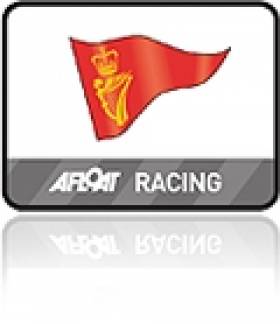Displaying items by tag: Bad Company
29 Compete in CH Marine Winter League
A very good fleet of 29 cruisers came to the line for the first day of the CH Marine Winter league writes Claire Bateman. The first radio sound to be heard was the familiar voice of Afloat correspondent Tom MacSweeney, who was PRO for the occasion, advising the course to be sailed would 99, sailing Classes One and Two together and Classes 3 and White Sail also together. An equally well known voice came back wondering whether there would be water at one particular mark!!
The sea was flat and there was a fitful wintery sun. In spite of the dire forecast that had been promised, one could have been doing a lot worse than enjoying a race in Cork Harbour.
The course turned out to be a good choice as it is divided into three parts and could be shortened after any one of the three rounds. The wind from the ESB stack at Whitegate was showing north west, Met Eireann report from Roches Point was giving 5 knots from the west and the Race Officer for the Laser fleet was setting a course for a south west wind. It was that kind of day.
It was an off wind start and True Penance with Joe English on spinnaker got the best start with End Game just behind with Jimmy Nyhan trimming the spinnaker, and Bad Company was looking good as well on the shore side. Magnet was throwing all sorts of shapes at the cage but a was bit slow hoisting her spinnaker.
Classes Three and White Sail sailed one round of the course and Classes One and Two got in two rounds. This worked out very well because as the race progressed the tide was getting stronger and this helped the boats to make it out the harbour against the tide so it all jelled very well.
The prize giving followed at which CH Marine presented the competitors with very seasonal and acceptable bottles of wine and boxes of Cadburys Roses and immediately afterwards the threatened rain began to pour down but as this stage the competitors were not bothered as they were ready to go home having enjoyed a great day of racing.
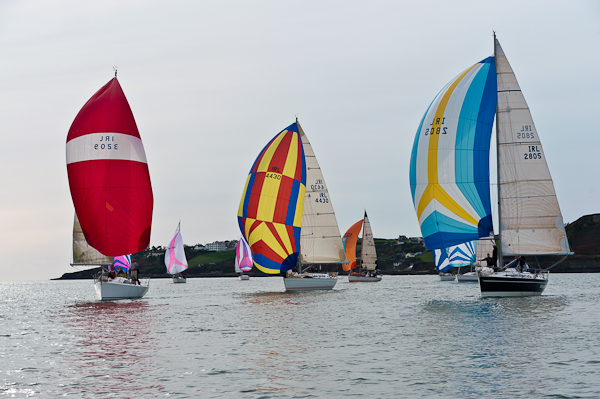
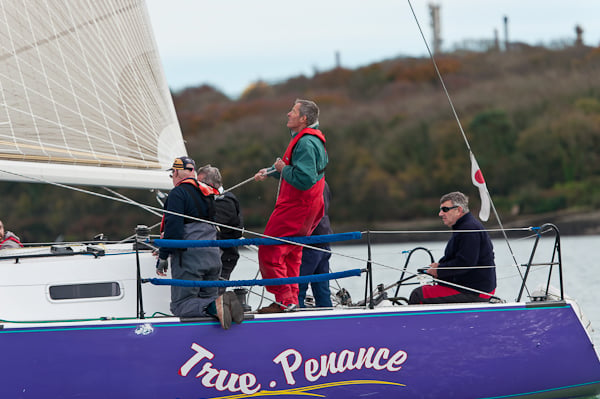
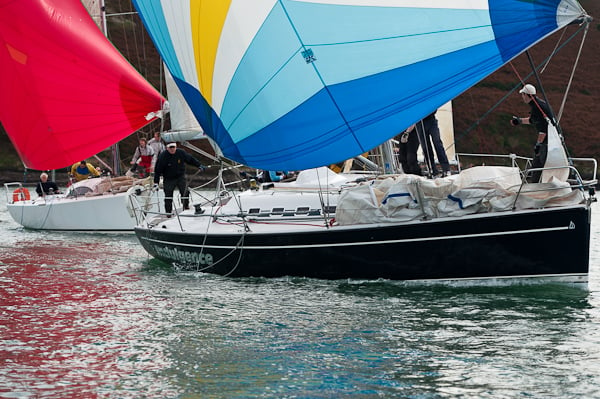
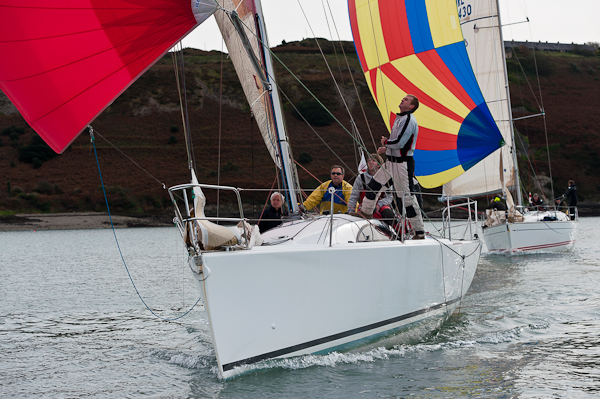
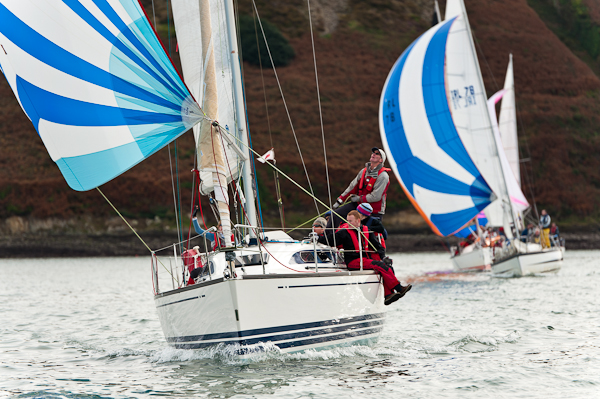
Photos by Bob Bateman


























